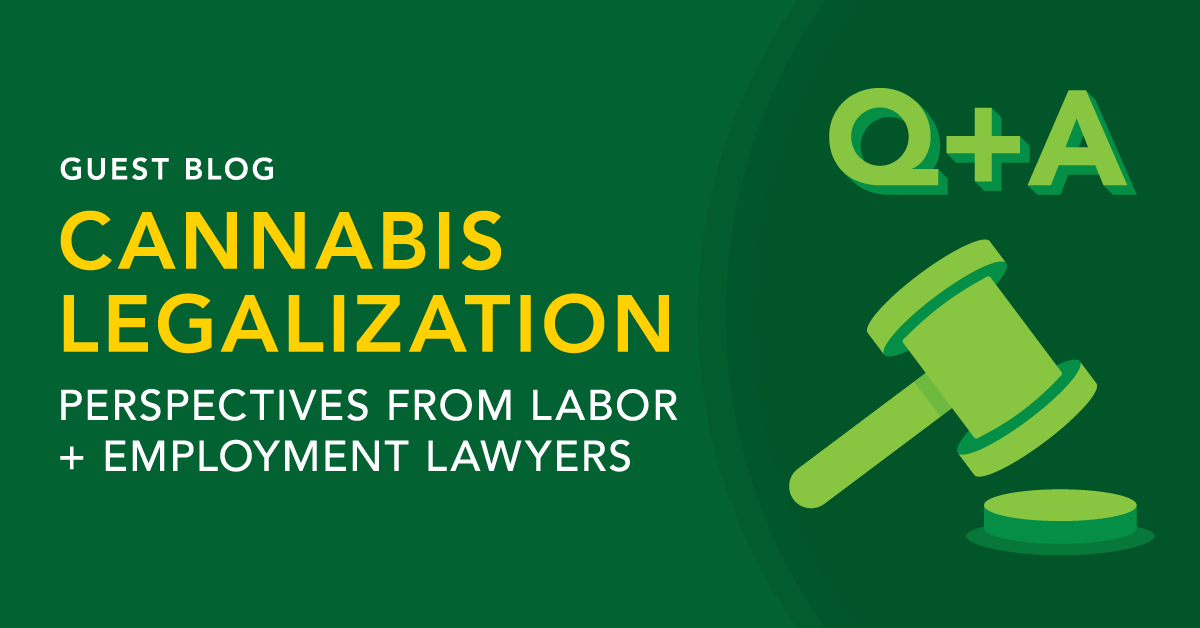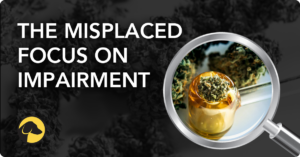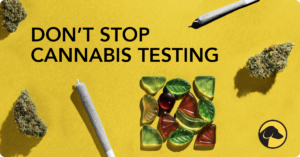
Cannabis Legalization: Employment Law Insights
State legislatures and ballots have become the laboratory for new cannabis reform policies to try to help create safer workplaces while also giving adults the right to use cannabis.
As Co-Chairs of the Drug Testing Practice Group at employment law firm Ogletree Deakins, Rayna Jones and Michael Clarkson help a broad range of clients draft drug testing policies and advise them on state-level cannabis laws and multi-state drug testing issues.
Rayna and Michael, thank you for taking the time to speak with me and answer some of the most relevant concerns employers have shared with us regarding evolving cannabis laws.
__
Q: Could you provide a brief overview of Ogletree Deakins?
Rayna: Ogletree Deakins is a labor and employment law firm representing management in every aspect of labor and employment-related legal matters. We provide coverage through 53 offices in 31 U.S. states, the District of Columbia, the U.S. Virgin Islands, Canada, Mexico, and Europe. We represent employers of all sizes and across many industries, from small businesses to Fortune 500 companies.
We have a variety of practice groups at the firm, including the Drug Testing Practice Group. Our practice group has approximately 70 members, and we routinely provide blogs, webinars, and podcasts addressing pertinent drug testing and cannabis-related issues. Our team of attorneys are available to advise employers in navigating the complex and wide-ranging workplace issues created by the growing number of cannabis legalization laws, drafting substance abuse policies and implementing drug testing programs, and litigation defense such as cannabis accommodation and “false positive” drug testing cases.
__
Q: Can you describe some of the changes your team suggests to clients as they update their drug testing policies to accommodate the new legal status of cannabis?
Michael: We recognize that the different approaches to medical and recreational cannabis accommodation taken by states and municipalities is challenging for multi-state employers. As cannabis has seemingly become less and less controversial and employers continue to struggle to recruit and retain talent, employers must evaluate whether blanket prohibitions against cannabis use – whether recreational or medical – continue to make sense for their company.
We advise our clients on the balancing of safety, legal compliance, and staffing pressures in the current job market. Anecdotally, the trend appears to be moving away from pre-employment testing for cannabis, especially for employers who are not governed by federal regulations (e.g., Department of Transportation regulations). This is probably the question we get asked most frequently from our clients – whether to remove cannabis from their pre-employment (and in some cases random) testing panels.
To address these concerns, we assist our clients in implementing up-to-date drug testing policies, implementing cannabis accommodation processes, and training management to address these issues.
__
Q: In your career, have you witnessed any other changes to employment law as significant or widespread as the ones occurring as cannabis laws change?
Rayna: We have practiced employment law for many years, and the rapid changes in the laws surrounding cannabis are unprecedented. It has created significant challenges for employers, especially those operating in multiple states.
__
Q: Can you share any (anonymous) anecdotes of employers who have run into issues due to cannabis testing policies established prior to cannabis legalization?
Michael: Prior to 2017, the outcomes of lawsuits involving cannabis were overwhelmingly in favor of employers. Since 2017, however, the tide has turned, and the cases predominantly favor employees.
The first four big lawsuits in Rhode Island, Connecticut, Massachusetts, and New Jersey illustrate the risks of an “old school” model. The argument that “cannabis is illegal under federal law” is a weak defense to an applicant or employee’s claim that cannabis use should be accommodated.
We have seen a significant increase in the number of Equal Employment Opportunity Commission and state agency charges alleging disability discrimination in relation to an applicant or employee’s use of medical cannabis and lawsuits alleging that employers failed to accommodate an individual’s cannabis use. Employers who disregard state cannabis laws are definitely putting themselves at risk of a variety of claims.
__
Q: We are at the beginning of a new year. Do you have a couple of predictions about cannabis legalization for 2022?
Rayna: There is an undeniable march toward greater job protections for medical and recreational cannabis users. Over the last few years, cannabis use has become more socially acceptable. Polls have shown that voters favor legalization. As a result, we have seen a major shift in state laws on cannabis legalization. For example, New York and New Jersey passed laws providing significant employment protections to recreational cannabis users last year. In addition, as of January 1, 2022, Philadelphia has restricted pre-employment cannabis testing, and Connecticut’s new recreational cannabis law contains employment protections that go into effect July 1, 2022. While many states still lack any type of employment protection for cannabis users, we anticipate that over the next few years, more states will enact such protections for both medical and recreational cannabis users. These new laws have prompted many employers to revisit their current drug testing and cannabis use policies.
As we mentioned earlier, we have seen a significant shift away from blanket cannabis prohibitions and toward a focus on employee “fitness for duty.” Many employers are less interested in regulating what their employees do off-duty, but in turn, are more interested in taking steps to maintain a safe and productive work environment. Employers should implement clear policies that prohibit the use and possession of cannabis or being under the influence of cannabis in the workplace or during working hours.
To enforce these policies, it is vital that employers train their supervisors and managers on how to spot impairment, how to properly document impairment if observed, and the process for conducting reasonable suspicion drug and alcohol testing. As employers move away from pre-employment cannabis testing, reasonable suspicion testing has become an even more important tool in maintaining a drug-free workplace. Employers are also looking for new technologies that can isolate recent cannabis use to support these reasonable suspicion determinations.
As the cannabis legalization trend continues (and it will continue) and more states adopt employment protections for cannabis users, it will be challenging for employers to stay ahead of developments and in compliance with the myriad of state and federal laws. Employers need to update their policies and practices to address these laws.
__
LEARN MORE
Thank you to Rayna and Michael for your insight. If you’re interested in hearing more from Rayna and Michael at Ogletree Deakins, please watch this ON-DEMAND webinar we collaborated on: “An Update on State Cannabis Laws and Trends for 2022”. You’ll walk away with actionable steps you can take to promote SAFETY+FAIRNESS™ in your workplace.

February 10, 2022
By DOUG BOXER
Chief of Policy + Strategic Initiatives
Share












